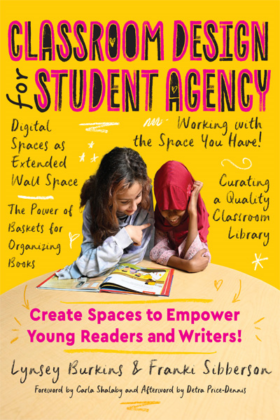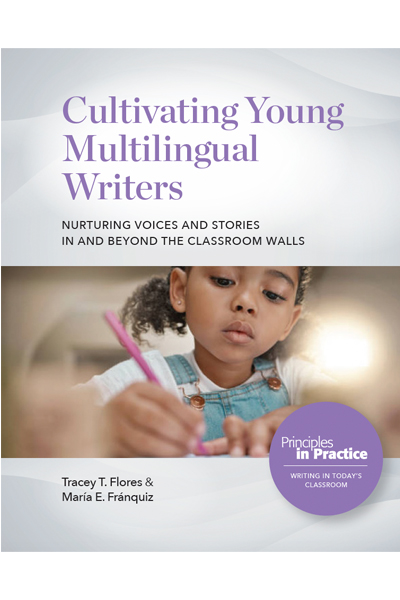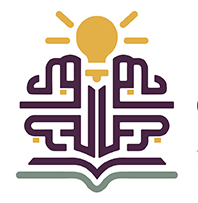About the Elementary Section
This section is made up of a diverse group of teachers, literacy coaches, early reading and writing specialists, teacher educators, and school administrators interested in literacy development and in literacy teaching at the elementary school level. Elementary section members connect with and support teachers as they work closely with students, administrators, and families to develop and promote lifelong literacy learning.
Featured Elementary Publications
Classroom Design for Student Agency: Create Spaces to Empower Young Readers and Writers
Lynsey Burkins and Franki Sibberson show how to set up preK–grade 6 classrooms that support student agency, independence, and choice.
Cultivating Young Multilingual Writers: Nurturing Voices and Stories in and beyond the Classroom Walls
Tracey T. Flores and María E. Fránquiz offer ideas for K–5 educators who are interested in cultivating young writers by designing and facilitating writing instruction that begins with the resources that students bring to the classrooms from their families, homes, and communities.
Elementary Section Office Hour: Cozy Connections
Wednesday, February 4 | 7:00 p.m. ET
Learn More and RegisterLanguage Arts
This is the premiere journal for the teaching of language arts, focusing primarily on issues concerning children of preschool through middle school age. This peer-reviewed publication draws a diverse readership of teachers, researchers, teacher educators, policymakers, administrators, and all those with an interest in language, literacy, literature, and culture.
Elementary Awards
Learn about these awards recognizing educators and journal articles and how you can nominate for them:
Leadership
The Elementary Section Steering Committee (ESSC) members are elected by the NCTE membership each year to a four-year term. The Chair is elected from within the ESSC to a two-year term and serves on the NCTE Executive Committee representing the interests of the elementary membership.
NCTE Professional Dyads and Culturally Relevant Teaching (PDCRT)
The PDCRT project, initiated by the Affirmative Action Committee of the Early Childhood Education Assembly (ECEA) of the National Council of Teachers of English (NCTE) was developed to create a space within NCTE to support early childhood Educators of Color and educators who teach Children of Color, children who are emerging bi/multilinguals, and children from low-income households in studying about culturally relevant pedagogies and generating, implementing, documenting, evaluating, assessing, and disseminating classroom practices and process reflections from work done in preK to fifth-grade classrooms.
Early Childhood Education Assembly
The Early Childhood Education Assembly (ECEA) supports teachers of young children with a strong emphasis on promoting thoughtful practices that enhance the teaching and learning of young children within and across diverse communities.
Children's Literature Assembly
The Children’s Literature Assembly (CLA) provides a forum, undertakes programs and projects of special concern to people interested in children’s literature, promotes the field of children’s literature, and serves as a clearinghouse for information on children’s literature.





